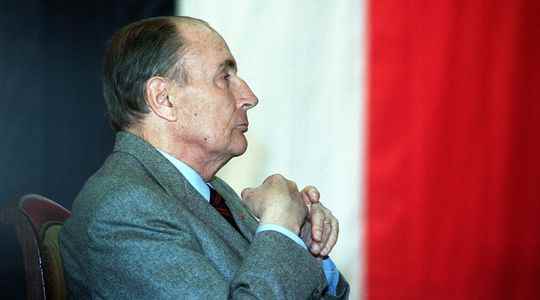How can we respond quickly, and without disappointing, to Ukraine’s desire for Europe and that of the other countries knocking at the door of the European Union? In Strasbourg, on May 9, Emmanuel Macron proposed the establishment of a “European political community”. This antechamber of the EU would thus allow “the democratic European nations adhering to our base of values to find a new space for political cooperation, security”, specified the French president, at the dawn of his second mandate.
This “place for sharing major political choices, with great symbolic visibility” was also suggested, in the columns of L’Express, by Enrico Letta, former President of the Italian Council. The current secretary of the Italian Democratic Party recalled in passing that it was a “beautiful idea of (François) Mitterrand”. It dates back to December 31, 1989, when a new wind was blowing on the Old Continent: the Berlin Wall fell and Germany began its reunification, while the Eastern countries turned the communist page in different ways. : peaceful in Poland, bloody in Romania.
The socialist president then surprised everyone by announcing, during these wishes for the new year, that he wanted the creation of a “European Confederation”. Here is the passage where he evokes this ambition for the first time: “I am convinced that [la Communauté économique européenne] has, by its very existence, powerfully contributed to the upsurge of the peoples of the East by serving them as a reference and a pole of attraction. The second stage remains to be invented: from the Helsinki agreements, I expect to see the birth in the 1990s of a European Confederation in the true sense of the term, which will associate all the States of our continent in a common and permanent organization of exchanges, of peace and security. This will obviously only be possible after the establishment in the Eastern countries of party pluralism, free elections, a representative system and freedom of information. At the speed things are going, we may not be that far off.”
This project, Mitterrand holds as long as he will occupy French diplomacy for a year and a half. But an insurmountable obstacle will reduce his chances: the French president wants Moscow to be part of it, and not Washington. Gold, as Catherine Lalumière recalled in an interview, then Secretary General of the Council of Europe, “for the countries of Central Europe, which had just freed themselves from Soviet tutelage, to find themselves shoulder to shoulder with the USSR (its dissolution did not take place until 1991 ) and without the United States” is almost impossible. Especially since the priority for them is then to join NATO, the best security guarantee for the future.
Washington opposed to the project
Already, François Mitterrand was pointing out to countries, like Poland, seeking to join the EEC as quickly as possible (succeeded by the European Union in 1993), that an application would take a decade to complete. But then many of them refused what he considered to be a cut-price EEC.
For its part, Washington looks with circumspection on this French proposal which excludes them. There is already the Council of Europe and the Conference on Security and Cooperation in Europe (which became the OSCE in 1994), a forum for dialogue between West and East, of which they are members, with Canada. “From the beginning of 1991, American diplomacy launched a diplomatic but also financial campaign – what could the fine idea of Confederation do in the face of the very concrete reality of American economic power? – aimed at the countries of Eastern Europe. ‘Is, then Foreign Minister Roland Dumas reported in 2001, in the magazine Foreign politic. A campaign where the French idea was systematically denigrated. (…) These criticisms ended up bearing fruit, Washington having constantly affirmed that we wanted, by this means, to prevent the countries of Central and Eastern Europe from entering the EEC.
Far from taking into account the negative signals which accumulate, François Mitterrand maintains his project. And he obtained the organization, from June 12 to 14, 1991, in Prague, of the Assizes of the European Confederation, bringing together personalities from all over the continent. But it was on this occasion that the idea launched a year and a half earlier was buried by the Czechoslovak President, Vaclav Havel, who declared, in conclusion, that “these foundations (…) do not claim any attributions “, before adding, at a press conference : “I can hardly imagine this project [de confédération] without the assistance of the United States and Canada”.
However, until the end of his second term, François Mitterrand will continue to defend this idea of a European Confederation. During his visit to Paris in October 1991, the first president of Ukraine, Leonid Kravtchouk (who died on Tuesday), was also favorable to the idea of Mitterrand. More than three decades later, it could, in a new form, allow his country to tie up with the European club.
